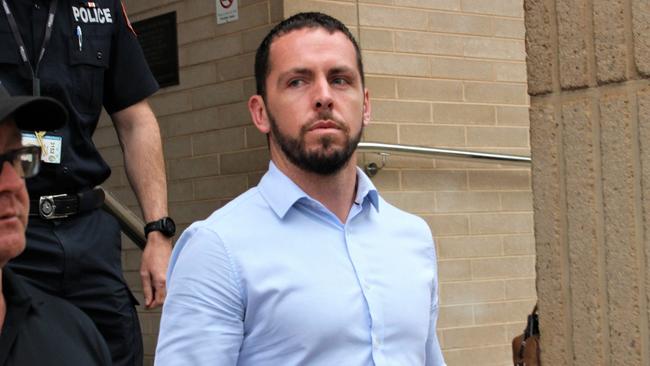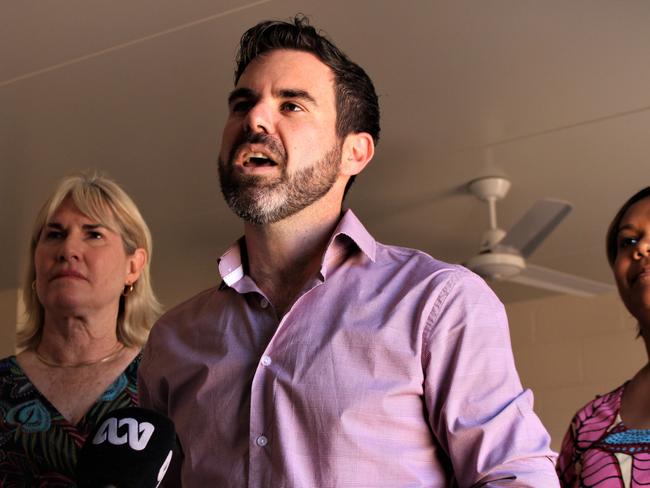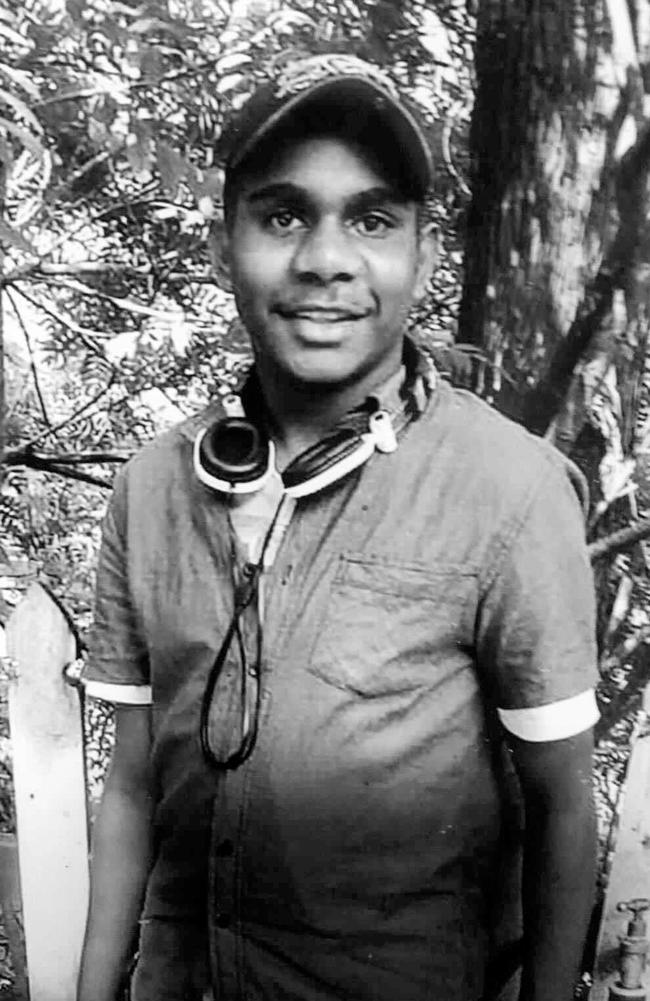Zach Rolfe ‘playing dice’ with risky legal bid to avoid answering questions, court hears
Attorney-General Chansey Paech has argued Zach Rolfe is ‘playing dice’ in a legal bid to avoid answering questions, saying it would create a ‘loophole’ in the law.

Police & Courts
Don't miss out on the headlines from Police & Courts. Followed categories will be added to My News.
Zach Rolfe is “playing dice” and could end up having to give evidence at an inquest into the death of Kumanjayi Walker “with no protection at all” if a legal bid to avoid answering questions fails, a court has heard.
Territory Coroner Elisabeth Armitage is presiding over the long running inquest into the 19-year-old Warlpiri-Luritja man’s death after he was shot three times by Constable Rolfe during a bungled arrest in 2019.
Constable Rolfe was acquitted on all charges over the shooting by a Supreme Court jury in March and refused to testify at the inquest last week after claiming a “penalty privilege” against self-incrimination.
His lawyers lodged an appeal in the Supreme Court against a ruling by Ms Armitage that she could compel Constable Rolfe to testify under the protection of a certificate declaring his answers could not be used against him in internal police disciplinary proceedings.
Attorney-General Chansey Paech then intervened to argue in support of Ms Armitage’s ruling, as did the North Australian Aboriginal Justice Agency, with Justice Judith Kelly hearing the appeal on Wednesday.
Barrister for the Attorney-General, Tim Game SC, urged Justice Kelly to affirm the original ruling, after NAAJA contended that Constable Rolfe should be compelled to give evidence without the benefit of the immunity.
“There is an aspect to the fact that Mr Rolfe is playing dice,” Mr Game said.
“He’s playing dice, because if NAAJA’s submission is correct, he ends up having to give the account with no protection at all.
“And we recognise that that construction is open, but we say that our construction is preferable and should be adopted.”

Mr Game said if Justice Kelly were to overturn Ms Armitage’s ruling, it would amount to a “loophole” that would cause the Coroner’s power to compel testimony to “collapse to the ground”.
He said the legislation that precluded a witness’s evidence from being used against them in civil and criminal proceedings was “aimed to be able to get at the truth” and should apply equally to disciplinary proceedings.
“For example, a criminal offence is obviously going to expose you to a civil penalty, of some kind, or a penalty of some kind, if you are in a position of employment with the state, for example, as a police officer, or a prison officer,” he said.
“So it’s not really feasible to be sitting around saying well this one’s a crime, that one’s a civil penalty, when you’ve got a protective provision of this kind.
“And so this legislation is intended to jump over that.”
Mr Game said the provision was intended “to pick up whatever that exposure might be, of an adverse kind, to both crime and to penalty”.
“Were it otherwise, the whole thing would collapse to the ground, in respect of police officers and prison officers, because things that would incriminate them, would certainly expose them to civil penalty,” he said.
“So there would be a loophole that would bring the provision to the ground.”
The hearing continues on Thursday.
Zach Rolfe’s lawyers take fight for right refuse to answer questions to Supreme Court
Lawyers for Zach Rolfe have taken their fight to prevent the NT Police officer from being forced to answer questions about his actions in a fatal shooting to the Supreme Court.
Territory Coroner Elisabeth is presiding over the months’ long inquest in Alice Springs into the death of Kumanjayi Walker after he was shot three times by Constable Rolfe during an attempted arrest in Yuendumu in 2019.
Constable Rolfe was acquitted on all charges over the shooting by a Supreme Court jury in March and refused to give evidence in the inquest last week on the basis his answers could expose him to internal police disciplinary proceedings.
Ms Armitage had previously ruled Constable Rolfe could be compelled to answer the questions under the protection of an immunity certificate, but his legal team appealed that ruling to the Supreme Court.
Attorney-General Chansey Paech has since intervened in the case, arguing in support of Ms Armitage’s ruling, while lawyers for the North Australian Aboriginal Justice Agency argue the “penalty privilege” does not apply to inquests at all.
On Wednesday, Constable Rolfe’s barrister, Ben Doyle KC, urged the court to “hold that penalty privilege is a distinct ground, separate from section 38 (of the Coroner’s Act), for the refusal to answer a question”.
“Put shortly, the issue for determination is whether penalty privilege is a basis, quite apart from s38, upon which a witness who is being examined on oath in an inquest, under The Coroners Act 1993 Northern Territory, is entitled to refuse to answer a question,” he said.
“If the answer to that question is no, in other words, if penalty privilege is not a basis so to decline, there are two possibilities.

“The first is that the reason for that is because s38 of the 1993 Act is addressed, both to self-incrimination privilege, and to what I’ll be referring to as penalty privilege.
“The other alternative, is that s38 is not addressed to, and is not engaged by a claim of penalty privilege, but that either s38 abrogates penalty privilege, or the Act construed as a whole, has always abrogated penalty privilege.”
Mr Doyle said in contrast to those arguments, his client’s position was that the penalty privilege was “a common law right arising presumptively in judicial proceedings”.
“The first proposition that we’ll seek to demonstrate, is that the High Court has recognised penalty privilege to be a distinct privilege, attracting the principle of legality, thus requiring that it be excluded, expressly, or by necessary intendment, in both judicial proceedings, and non-judicial proceedings,” he said.
The hearing continues on Thursday with the inquest due to conclude for this year at the end of next week and Constable Rolfe expected to return to the witness box in 2023.




